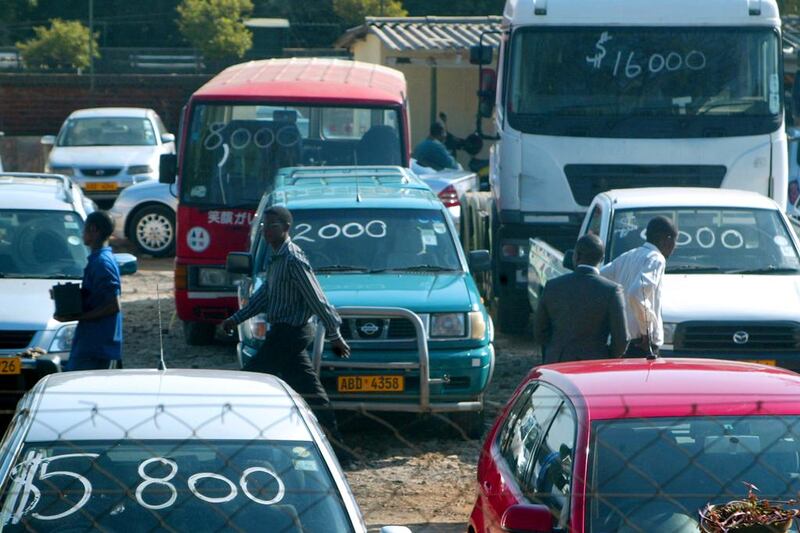Africa is where old bangers go to die, and each year tens of thousands of used vehicles are tossed into containers and shipped over to meet the continent’s growing need for personal transport.
Nigeria, the continent’s largest economy, imports about half a million cars a year, according to the country’s National Automotive Council. Most are from Japan, and brands such as Toyota are now commonplace on the country’s roads.
Price is more important than condition, so vehicles are crammed into shipping containers nose-to-trunk and even hung from chains welded on the roof. Inevitable dents and dings are hammered out when the cars are unpacked.
Selling for a couple of hundred dollars or less, these cars are a cheap alternative to new models that cost 10 times that amount.
“Consumers are looking to the used market for both affordability and value, on the back of continued price increases on new cars,” said Rudolf Mahoney, the head of brand and communications at the South African vehicle financier WesBank.
Over the past year or two, South Africa’s currency has plummeted and is now one of the worst performing in the world. Even though the country is a major car manufacturer, it still imports large amounts of parts as well as vehicles themselves. This has pushed even cheap entry-level new cars out of the reach of many people.
“New vehicles prices have increased more or less by double digits so far this year and are set to increase close to a further 20 per cent during the rest of 2016,” Mr Mahoney said.
Not all African countries are happy to take the cast-off cars. Zimbabwe has from time to time tried to ban their import because of the US$1 billion in foreign exchange outflow this causes, according to treasury figures.
In 2010 and 2014 the government said it would prohibit their import, but a consumer revolt ensured legislation was never passed.
Now, it is possible for Zimbabwean motorists to order a car online from Japan, have it shipped to the port of Durban in South Africa and transported by road carrier to the border between the two countries for delivery.
A lack of environmental standards in many African countries also makes it easier to sell older models.
After the Volkswagen diesel scandal, it is likely that many now-unwanted cars will end up on African roads, where their belching of noxious gases will be ignored by authorities.
So while Africa is the hot destination for manufacturers to set up plants to build new cars, old clunkers from abroad will dominate the continent for some time to come
business@thenational.ae
Follow The National's Business section on Twitter





